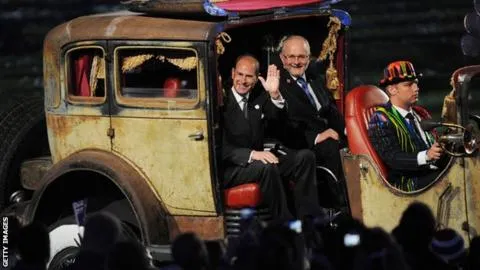http://m.bbc.com/sport/live/football/41202199
Hamilton give youngsters a chance. They have to since they cannot afford the wage bill of most of their league rivals.
The Accies Academy continues to churn out bright young things, with Greg Docherty, 20, Steven Boyd, 20, Scott McMann, 21, all playing tonight.
Every year the pundits are asked for their pre-season predictions and most pick Hamilton as the likeliest team for the drop.
Yet here they are in what is their fourth consecutive campaign in the top flight.
Accies have the smallest budget and smallest support but they keep on punching above their weight.
They sit fourth in the table after four games, again defying all the experts.
Article share tools

During his time in charge, the International Paralympic Committee (IPC) has progressed from a relatively small disability sports body to one of the most highly respected sports organisations in the world.
The Paralympics are now the world's third biggest sporting event, beaten only by the Olympics and World Cup in terms of global ticket sales.
In his 16 years in charge of the IPC, Craven - a five-time Paralympic wheelchair basketball player - has been driven by the mantra of "enabling Paralympic athletes to achieve excellence and inspire the world".
With 38 more nations competing at Rio 2016 compared to Sydney 2000, and TV audiences swelling from about 300 million to over 4.1 billion during the same timeframe, it could be considered 'mission accomplished'.
But Paralympic sport has not been without its challenges.
From the imprisonment of the movement's biggest star - Oscar Pistorius, to state-sponsored Russian doping, to the Paralympics that nearly did not happen, to the ongoing concerns about classification abuse, it has been a far from simple path to navigate.
Before the appointment of his successor on Friday, Craven explains to BBC Sport how he helped transform the Paralympics.
He also assesses some of the challenges facing the next IPC president Andrew Parsons, who secured 84 votes out of 162 on Friday.